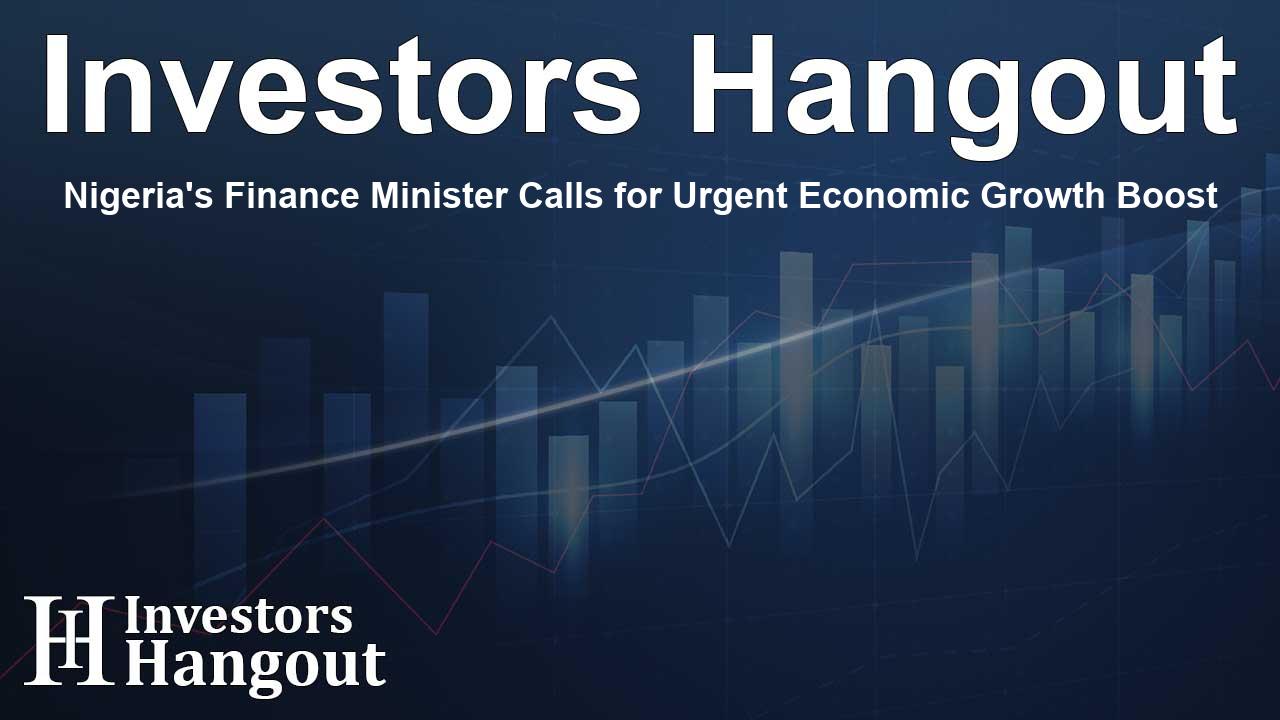Nigeria's Finance Minister Calls for Urgent Economic Growth Boost

Nigeria's Economic Growth Strategy
In an insightful discussion at the World Economic Forum in Davos, Nigeria's Finance Minister and Coordinating Minister for the Economy, Wale Edun, emphasized the urgent need for the country to double its economic growth. Currently, the growth rate stands at an annualized 3.5%. The goal? Lifting millions of Nigerians out of poverty within the next year or two.
The Path to Growth
Despite challenges over the past years, including soaring inflation as a result of significant economic reforms, Edun expressed optimism. He highlighted that these reforms, while tough, are paving the way for an influx of investment into Nigeria's economy.
Engaging with Business Leaders
This week, Edun has been actively meeting with key business leaders from sectors such as consumer goods, food and beverages, financial services, and infrastructure. His objective is clear: to promote and attract strong investments. "It’s a steady trickle now. What we want is a stream and at the end of the day a flood of investment," he remarked in a Thursday interview.
A Shift Towards Private Investment
Nigeria is striving to pivot towards private investments, stepping away from a heavy reliance on borrowing to create jobs. As the government faces the challenges of stagnation, high inflation rates, and a burdensome debt load, the focus is on creating a sustainable and vibrant economy.
Presidential Commitment
President Bola Tinubu has pledged an ambitious economic vision emphasizing a growth target of at least 6% annually. Furthermore, he aims to create significant job opportunities and unify exchange rates while addressing critical issues like rampant insecurity within the country.
The Impact of Economic Policies
With the elimination of the costly petrol subsidy and the lifting of restrictions on foreign exchange trading, Nigeria is entering a new economic phase. Although these changes have contributed to consumer inflation, Edun believes the citizens of Nigeria will soon overcome their current cost of living challenges.
Future Economic Expectations
Central Bank Governor Olayemi Cardoso has shared forecasts indicating that the economy is expected to grow by 4.17% this year, driven by the ongoing reforms and improvements in inflation stability. This growth outlook serves as a hopeful sign for the Nigerian economy, showcasing the potential benefits of recent policy adjustments.
Frequently Asked Questions
What is Nigeria's current economic growth rate?
Nigeria's current economic growth rate is annualized at 3.5%.
What is Finance Minister Wale Edun's goal for Nigeria's economy?
Wale Edun aims to double Nigeria's economic growth within the next one to two years.
What sectors is Nigeria focusing on for investments?
Nigeria is focusing on sectors such as consumer goods, food and beverages, financial services, and infrastructure.
What are President Bola Tinubu's economic commitments?
President Tinubu has committed to expanding the economy by at least 6% yearly and addressing issues like job creation and insecurity.
What economic forecast did the Central Bank Governor provide?
The Central Bank Governor expects the economy to grow by 4.17% this year due to ongoing reforms.
About Investors Hangout
Investors Hangout is a leading online stock forum for financial discussion and learning, offering a wide range of free tools and resources. It draws in traders of all levels, who exchange market knowledge, investigate trading tactics, and keep an eye on industry developments in real time. Featuring financial articles, stock message boards, quotes, charts, company profiles, and live news updates. Through cooperative learning and a wealth of informational resources, it helps users from novices creating their first portfolios to experts honing their techniques. Join Investors Hangout today: https://investorshangout.com/
Disclaimer: The content of this article is solely for general informational purposes only; it does not represent legal, financial, or investment advice. Investors Hangout does not offer financial advice; the author is not a licensed financial advisor. Consult a qualified advisor before making any financial or investment decisions based on this article. The author's interpretation of publicly available data presented here; as a result, they should not be taken as advice to purchase, sell, or hold any securities mentioned or any other investments. If any of the material offered here is inaccurate, please contact us for corrections.